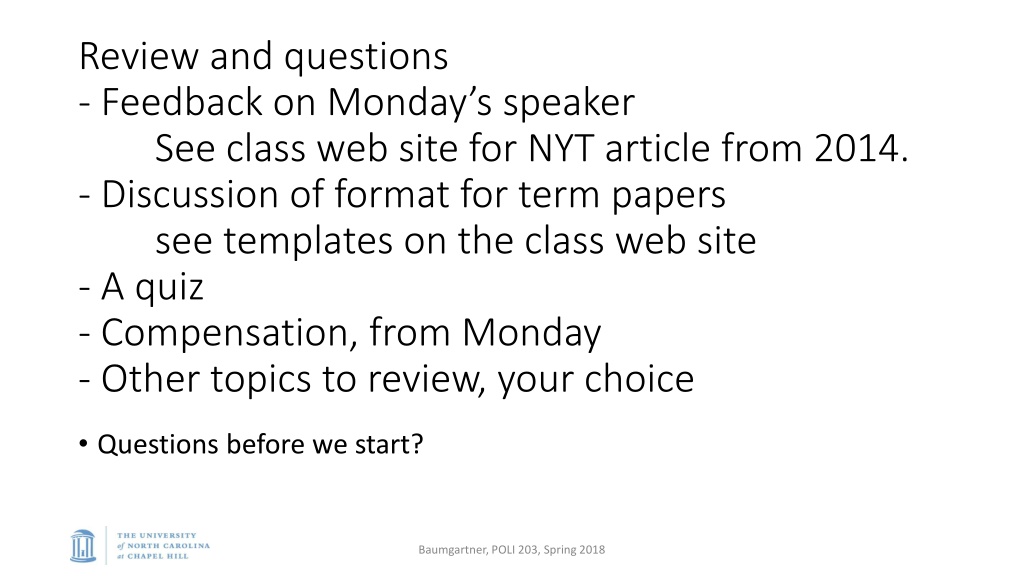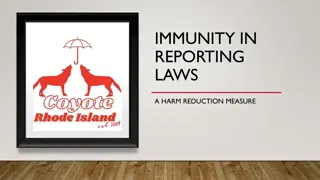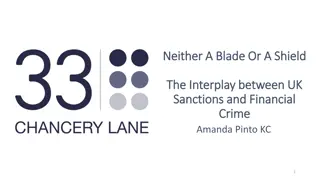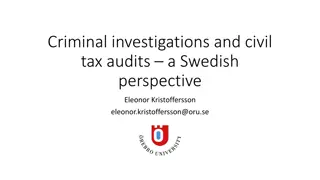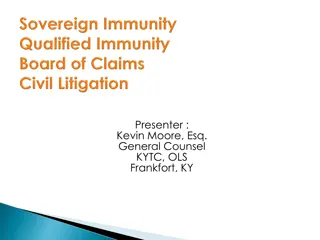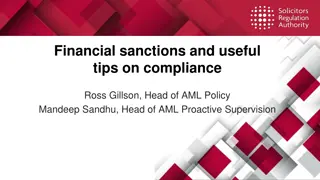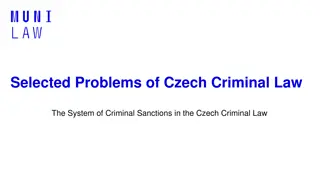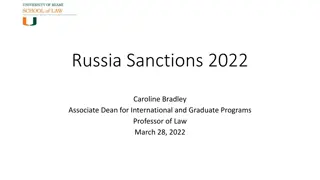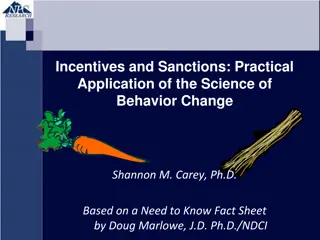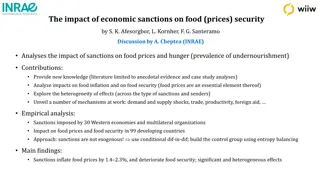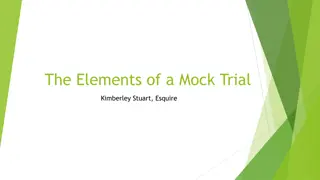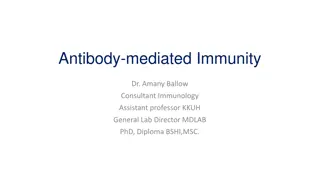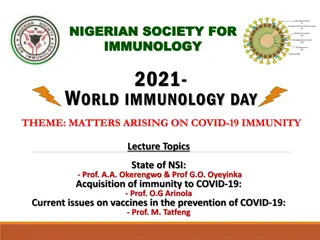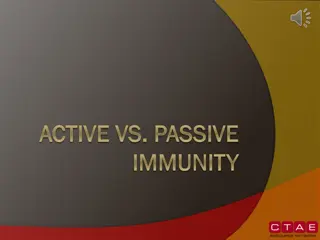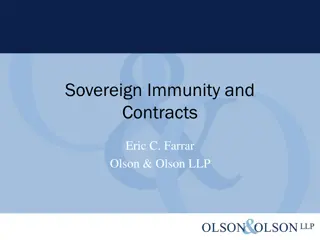Analyses on Legal Immunity, Compensation, and Criminal vs. Civil Sanctions
Exploring concepts of absolute and qualified immunity, challenges in receiving compensation post-exoneration, and the differences between criminal and civil sanctions, shedding light on the complexities of legal justice systems.
Download Presentation

Please find below an Image/Link to download the presentation.
The content on the website is provided AS IS for your information and personal use only. It may not be sold, licensed, or shared on other websites without obtaining consent from the author. Download presentation by click this link. If you encounter any issues during the download, it is possible that the publisher has removed the file from their server.
E N D
Presentation Transcript
Review and questions - Feedback on Monday s speaker See class web site for NYT article from 2014. - Discussion of format for term papers see templates on the class web site - A quiz - Compensation, from Monday - Other topics to review, your choice Questions before we start? Baumgartner, POLI 203, Spring 2018
Absolute and partial immunity Absolute immunity: A trial witness has absolute immunity with respect to any claim based on the witness testimony. Therefore, perjury cannot give rise to a civil suit. This includes anyone who testifies in trial. Qualified immunity: protects government officials from liability so long as they could reasonably believe that their conduct does not violate clearly established law Protects all but the plainly incompetent or those who knowingly violate the law. Was a right violated? Was that right clearly established (so should have been known)? Government agencies may not have a pattern and practice of constitutional violations (Monell claim) Baumgartner, POLI 203, Spring 2018
Compensation 27 states have some kind of compensation New Hampshire: $20,000 maximum New York: $80,000 per year, no maximum Typically, nothing at all, many hurdles to get it NC: Governor must issue a pardon of innocence to qualify for $700,000. Has been done just a handful of times. Civil Suits typically the only way to get significant compensation. Baumgartner, POLI 203, Spring 2018
Why so hard? Criminal element Maybe they did something else Sometimes prosecutors feel the exoneration was the injustice, not the conviction. That is, they do not believe they are innocent. Google any person convicted then released. Information about the original conviction will remain out there. Sometimes it s hard to come to the revised conclusion that they were innocent You can think of other reasons why governments are stingy here. Baumgartner, POLI 203, Spring 2018
Criminal v. civil sanctions The *district attorney* may decide to press charges against someone for such things as destroying evidence, perjury, etc. It does sometimes happen. The police officer in NYC from last week who falsified the eyewitness lineup photo sheet was being prosecuted for perjury. Note, however, that if it is the DA s office itself, it s hard to prosecute. This would require a federal indictment, the subsequent DA to prosecute their own predecessor, or the state Attorney General to bring charges. I m not aware of any such case. Baumgartner, POLI 203, Spring 2018
Civil penalties Criminal penalties: you go to jail. Civil penalties: you pay a fine. Usually, government agencies have liability insurance for exactly this reason. So, I destroy the evidence, the insurance company pays a fine Baumgartner, POLI 203, Spring 2018
